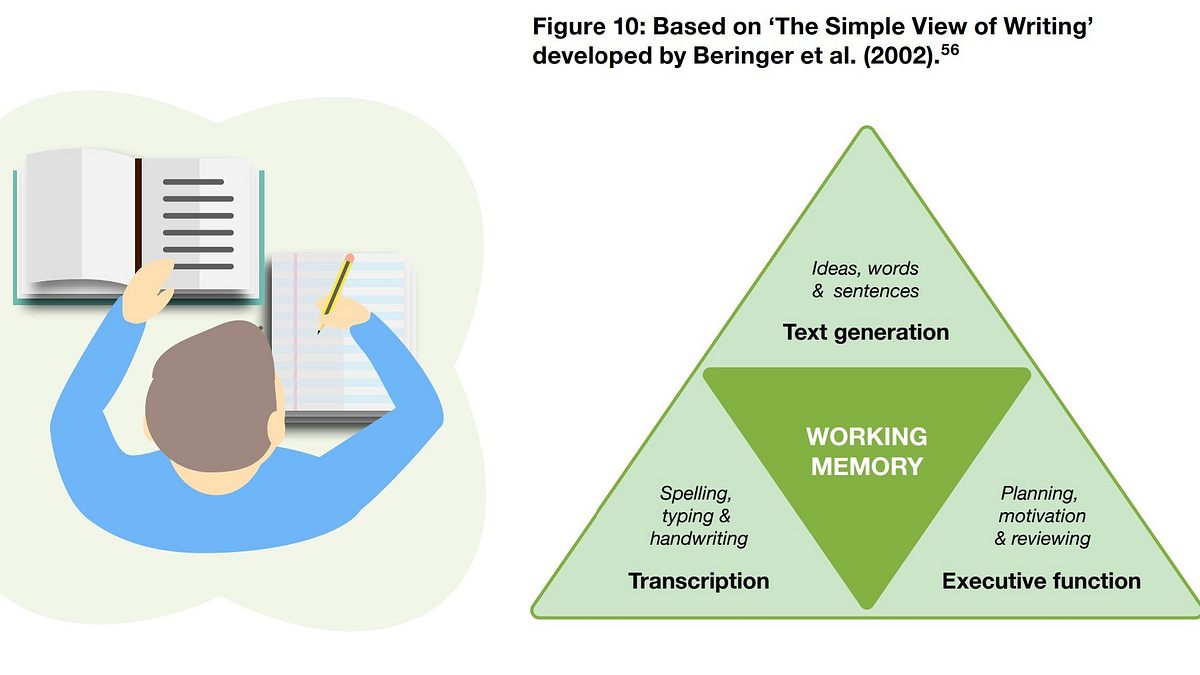

Research School Network: Improving Primary Writing Better writing or better writers?
—
Blog
Improving Primary Writing
Better writing or better writers?
Share on:

by Derby Research School
on the
Over the past 12 months at Academy Transformation Trust we have been exploring effective models of teaching writing throughout the Early Years Foundation Stage, Key Stage 1 and Key Stage 2. We’ve explored several resources and been fortunate enough to work with a range of experts who have been generous in sharing their time and expertise, including Sarah Green, Alex Quigley, Andrew Percival and Jess Rennie.
Our Academy Transformation Trust English Community of Practice have begun by considering Recommendations 4 and 5 of the Improving Literacy in Key Stage 2 Guidance report as our collective starting point:
When reviewing the key question, ‘What do the ‘best bets’ tell us about how to teach writing effectively?’ we soon realised that we are actually asking an enormous range of questions including (but not limited to) how best to effectively teach: vocabulary, spelling, punctuation, grammar, text types, genres, sentence construction, authorial craft and intent – the list goes on! Returning to The Simple View of Writing in the EEF Guidance Report has really supported us in considering which aspect of writing we are focusing on developing, whether that is relating to: Text generation, Transcription or Executive function. This model has really enabled us to redefine our intentions in our lesson planning and classroom delivery more specifically.

The development of our shared approach to writing began early last academic year after our English Community of Practice reflected on an excerpt from the Improving Literacy in Key Stage 2 Guidance report:
Ronald Kellogg, an American literacy expert, argues that ‘writing can be as cognitively demanding as chess.’ It is demanding because children need to coordinate several different processes. For instance, children need to work out what they want to communicate and how, handwrite or type accurately, regulate their own thoughts and behaviour, and monitor their work. Pupils will need extensive instruction, practice, and feedback to become skilled at coordinating these aspects of writing.
We chose to focus initially on how we could support all our pupils to apply their knowledge of spelling patterns, punctuation and grammar to their own independent pieces of writing whilst minimising the additional cognitive demands we may be placing on them.
As classroom practitioners, we recognise (and seek to minimise) the many difficulties that pupils can face when they are planning and executing accurate writing across a range of topic areas and subjects. Recommendation 4: Teach Writing composition strategies through modelling and supported practice suggests that we should consider writing as a ‘task made up of five stages: planning, drafting, revising, editing and publishing,’ and that ‘children can be taught, through modelling and scaffolding, strategies which support them to undertake each of these stages of the writing process.’

Our initial step was to plan explicit and regular opportunities for our learners to experience a highly- structured approach to the teaching of spelling and key grammatical structures appropriate to their year group. The pupils are then offered multiple opportunities to engage with, rehearse and revisit these key spellings and grammatical structures until they reach a high level of automaticity. Although we are early in our trial, we are already beginning to find that this rehearsal makes the application of these key skills to an independent piece of writing far less cognitively demanding and that pupils are producing writing which is more accurate and focused.
When considering Recommendation 5, Develop pupils’ transcription and sentence construction skills through extensive practice we have carefully considered the discussion questions posed in the Guidance Report: Why is it important to explicitly teach children to develop an efficient handwriting style? How can feedback support children to develop an efficient handwriting style? As a result of these questions we have decided to approach transcription and sentence construction in a similar way; through explicit instruction and deliberate rehearsal leading to automaticity. The Guidance Report further suggests that “it is important to promote the basic skills of writing – skills that need to become increasingly automatic so that pupils can concentrate on writing composition… this includes the transcription skills of handwriting, and spelling, as well as sentence construction…” It is interesting to note that the practice should be: ‘extensive’, ‘motivating and engaging’ and ‘supported by effective feedback,’ in order to be successful.
We are finding that this shift towards more deliberate and structured rehearsal of spelling, punctuation, handwriting and sentence construction ‘frees up’ the cognitive load of our pupils, allowing them to carefully consider the content (the what) of their writing rather than ‘the how.’ As classroom practitioners, we know that it can sometimes feel counterintuitive that in order to improve the accuracy and overall quality of writing we are asking pupils to write less, but The Writing Revolution confirmed our thinking that: “But when students do get a chance to write in elementary school, they’re often encouraged to write at length too soon, sometimes at a furious pace. They don’t learn how to construct interesting and grammatically correct sentences first, and they aren’t encouraged to plan or outline before they write.” In our classrooms we are firmly focused on writing accurately before writing at length.
As we move into the next phase of our trial we are refining our approach to the five stages of The Writing Process utilising the ‘5 A day’ Principle, particularly focusing on our use continued of explicit instruction, cognitive and metacognitive strategies.

More from the Derby Research School
Show all news

Blog -
Learning Behaviours
Behaviour is often thought of as something negative that gets in the way of learning.

In the news -
March 2024 Newsletter
Take a read of our March 2024 newsletter…

